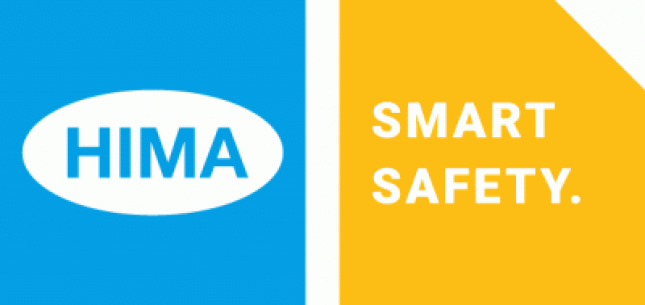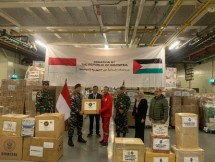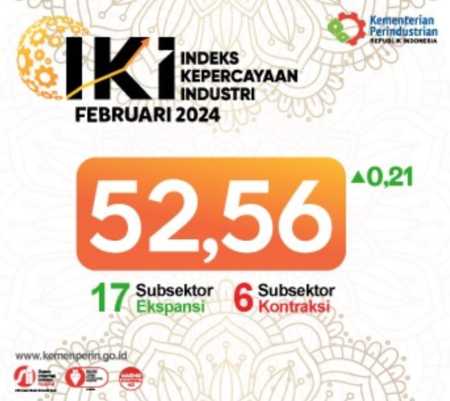Top 5 Questions on How To Keep Your Plant Running Safely During Times of Crisis
By : Krishna Anindyo | Wednesday, July 29 2020 - 12:40 IWST

HIMA (Photo by Rail Solutions Asia 2019 - German Pavilion)
INDUSTRY.co.id - Safe distancing, circuit breaker, lockdowns, working from home (WFH) - the never ending of changes we are facing during these unusual times of the COVID-19 pandemic raises new challenges for plant operators.
How can plants continue operation with depleted staff onsite? How are the responsibilities of external service providers affected? How can factory acceptance tests (FATs) be carried out? We explain what is changing for process industry companies – and what isn’t.
Q1) How can we guarantee plant availability despite safe distancing restrictions and the threat of curfews? This is the question the entire industry is asking.
Even with minimum internal staffing levels, plants can operate safely. The number of employees required onsite at any one time depends on the size and complexity of the plant. Even with fully-automated plants, experts must be physically present to detect potential process deviations and take early-stage countermeasures.
In the event of an alarm, they must intervene immediately. Safety controllers can return plants to a safe condition in emergencies, but employees are needed if consequential risks and production losses are to be avoided. They can also help ensure a prompt restart.
Q2) What happens if we, the plant operator rely on external help?
There may be a need for support or spare parts. This depends on the agreement with the service provider. Many industrial companies operate critical infrastructures. This means that in the event of a failure, there will be financial problems and also considerable disruption to public safety. Safety service providers must therefore also support a safe operation in times of crisis. This includes procuring spare parts and using appropriate service and support measures to eliminate malfunctions or unplanned downtimes within a pre-determined time frame.
If a company grants service providers access to the plant premises, the service is still possible. Quarantine measures must be observed, especially when working in risk areas. As an example, Every HIMA service engineer is equipped with protective equipment that complies with the recommendations of local authorities.
Q3) Is remote support an option?
Remote solutions are important for factory acceptance tests (FAT). However, to perform remote FAT, it is not enough to establish a simple video connection. The data transmission must comply with the necessary cybersecurity standards, and documentation must also be adapted. The requirements are high and not every service provider is able to do this. HIMA has developed a solution for functional and IT-safe remote FATs – in cooperation with German IT security company Genua GmbH.
With the "Work from home (WFH)" as default recommended by the Singapore government after June 1, 2020, HIMA is able to provide secure remote access solutions to facilitate remote operations and maintenance access for operators who are increasingly dependent on remote operations for their facilities.
This is especially important against the backdrop of the pandemic which imposes on-site safe distancing and deployment measures, possibly extended for the foreseeable future until vaccines become universally available.
HIMA’s consulting and services team is also able to provide remote services such as online training and workshop for clients, to help them build internal competencies effectively and conveniently.
Q4) What adjustments and replanning are needed? Will replanning compromise safety standards?
Replan what can be replanned. Many companies have long since adapted to the current situation, rescheduling downtime and plant start-ups. This can quickly result in a maintenance backlog. In order to avoid this, plant operators should still carry out upcoming modernisation and maintenance measures where possible.
Besides, it is not always possible to reschedule everything – even if it is to comply with standards for a safe operation. This means that recurring tests, such as proof tests, often cannot be postponed. In these cases, the safety provider can provide their usual support: from installation and commissioning to preventive maintenance and troubleshooting.
Q5) Can we achieve both productivity and safety in the near future?
Companies are not only concerned about the safety and security of a plant but also whether it can remain productive and profitable. Some may have to contend with declining customer orders by reducing employees’ hours and pay.
The situation cannot be sugar-coated. However, recently acquired capacity can still be used to help prepare for the future. One example is modernising safety equipment for greater automation and secure remote access. With these technological capabilities, it will be easier to guarantee plant availability – even in times of crisis.
Read Also
MoreLogin, the World's #1 Antidetect Browser, Showcased at Affiliate…
Experts gather in Nanning to support high-quality development of…
Huawei Garners Award from Manpower Ministry as Best Foreign Enterprise…
Government's Role in Consumer Protection in the Digital Era
Huawei Supplier Convention 2023: Driving Collaboration and Innovation…
Today's Industry

Rabu, 28 Februari 2024 - 12:47 WIB
Carsurin and NBRI Strengthen Strategic Alliance to Propel Indonesia’s EV Industry
PT Carsurin Tbk ("Carsurin") and the National Battery Research Institute ("NBRI") are pleased to announce the signing of a pivotal Strategic Alliance Agreement (SAA), marking a significant advancement…

Rabu, 21 Februari 2024 - 08:43 WIB
Gov’t to Continue Disbursing Rice Assistance
President Joko “Jokowi” Widodo has ensured that the Government will continue rolling out the rice assistance program for low-income families. The President made the statement when handing…

Rabu, 21 Februari 2024 - 08:40 WIB
Bapanas Head Ensures Availability of Rice Stock Ahead of Ramadan
The National Food Agency (Bapanas) has ensured the availability of rice for the fasting month of Ramadan and Eid al-Fitr 1445 Hijri/2024 CE. “We believe that there is enough rice for the fasting…

Rabu, 21 Februari 2024 - 08:23 WIB
Receives Chairman of Jababeka (KIJA), Menpora Dito Ready to Support the Development of Sports SEZs
Chairman of PT Jababeka Tbk (KIJA), Setyono Djuandi Darmono met the Minister of Youth and Sports of the Republic of Indonesia (Menpora RI) Dito Ariotedjo at the Kemenpora RI Office, Senayan,…

Senin, 19 Februari 2024 - 17:39 WIB
The Indonesian Embassy in Cairo Receives Aid for Palestine
The Indonesian Embassy in Cairo welcomes the Radjiman Wedyodiningrat Warship (RJW-992) which arrived at the Al Arish Port, North Sinai Province of Egypt at 8.00 A.M. Cairo local time (13/02).…

















News Comment